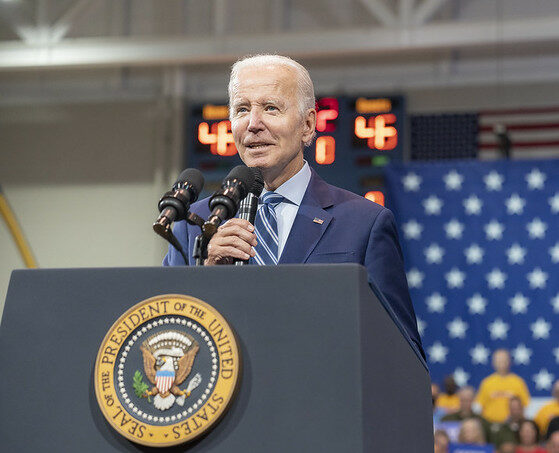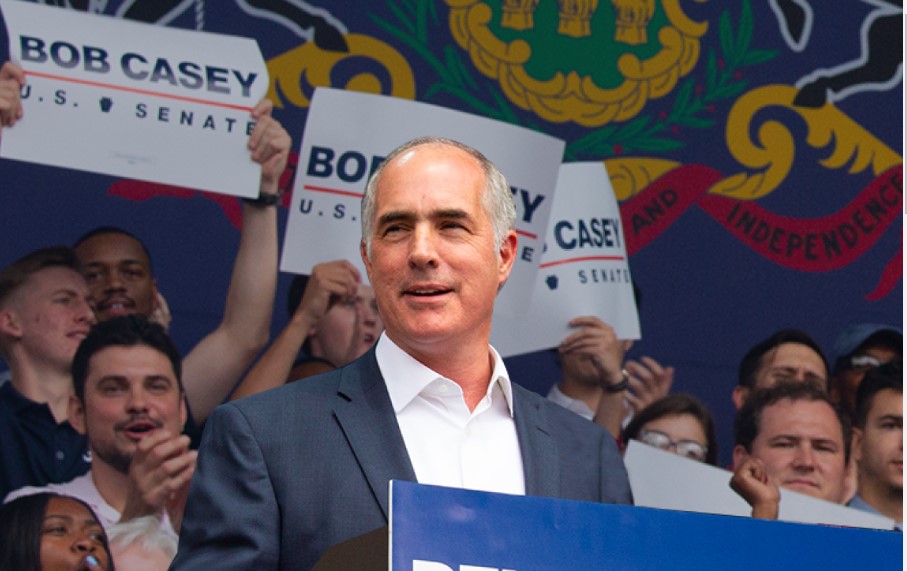Could ‘Scranton Joe’ Really Lose Swing State Pennsylvania?

When pollsters like Siena College and Emerson College want to take the temperature of voters in swing states, they inevitably stick a political thermometer in Pennsylvania. And as of late, those polls show “Scranton Joe” Biden trailing Donald Trump in the incumbent president’s home state.
Biden won Pennsylvania in 2020, and Democrats had strong showings here in 2022 and 2023. So, are Democrats really in danger of losing Pennsylvania in the 2024 White House race? Political pros say current polling is interesting — but not predictive.
“It can be somewhat dangerous to compare different polls that have different methodologies that were in the field at different times.” Republican political consultant Christopher Nicholas of Eagle Consulting Group told DVJournal. “That can get a little dicey…the usual disclaimers apply about polls being a year away, and Trump is looking like the presumptive nominee, but he’s not. No one has cast a vote yet.”
Fellow Republican political consultant Charlie Gerow of Quantum Communications agrees. He compared the early Biden-Trump polls to watching the stock market because “you never know what you’re going to get.” Gerow saw the polls as a “snapshot in time” and one that can’t be taken seriously until “you begin to see consistent patterns — which we’re not.”
If Republicans are urging caution, how do others feel?
“We have to be careful to not say that one poll is ‘the one,’” said Jeff Jubelirer of Bellevue Communications Group. He prefers looking at all data before deciding which candidate leads the race.
Recent polls in Pennsylvania show Trump leading by an average of a point and a half, according to RealClearPolitics. It is a significant swing from earlier this year when RCP found Biden leading by about four points.
There is still a feeling that voters appear desperate for candidates not named Biden or Trump. Both are deeply underwater with the electorate, though for different reasons. A Franklin & Marshall College poll found that 84 percent of Pennsylvania voters thought that Biden was too old for a second term.
Trump, on the other hand, is viewed as a “threat to democracy” by many independent voters who would like an alternative to the elderly Biden.
“People are dreading that being the choice again,” commented Nicholas, who compared the 2024 election to the 2016 election between Trump and Hillary Clinton. “It’s almost to the point of parody now: ‘Trump is the only Republican that Biden could beat’ and ‘Biden is the only Democrat that Trump could beat.’”
Why won’t both parties jettison Biden and Trump off the ballots? Fear, according to political strategists.
“[I]f all of sudden one of them went away, that party would become a surefire loser,” said Nicholas. “That’s how people view it now. Maybe it’s like a self-fulfilling prophecy.”
Gerow is full steam ahead on the Trump train. “The people that don’t want Trump dislike him for other reasons other than his age and mental acuity,” Gerow said. “Let the chips fall where they will.”
Jubelirer said he believes Biden could be vulnerable if he had to run against a Republican not named “Trump.” He called the other candidates “very formidable,” with the exception of Chris Christie.
He’s not sure who the best Biden replacement might be. “Kamala Harris isn’t much more popular – if at all – than Joe Biden,” he told DVJournal. “I do think…[California Gov.] Gavin Newsom…could engender more support than Joe Biden.”
The only Democrats officially challenging Biden are Minnesota U.S. Rep. Dean Phillips and author Marianne Williamson. Robert F. Kennedy Jr. dropped out of the Democratic primary to launch an independent presidential campaign.
As for Newsom, accusations of running a shadow campaign against Biden have dogged the governor for most of 2023. He has made multiple foreign trips and visits to other U.S. states. However, Newsom hasn’t formally declared a presidential run.
A potential wild card is Pennsylvania Gov. Josh Shapiro. The extremely popular Democrat gave essentially a stump speech to New Hampshire Democrats in September, portraying his administration as a “get sh-t done” one.
That doesn’t mean that he should run for president in 2024. Nicholas quipped that “in [Shapiro’s] mind, it’s an inevitability.”
Jubelirer thinks it is too early for Shapiro to seek national office. “His name’s been out there a little, but the country doesn’t know him yet, except those of us who are in the know.” He thinks 2028 is a better time for Shapiro.
As for next year’s presidential election, voters may enjoy gobbling up poll numbers instead of doing research into more important areas.
“The public remains interested in the ‘horse race’ aspect of the election,” said Jubelirer. “Who’s winning? Who’s losing? It draws more interest than a candidate’s positions on issues and other angles.”





